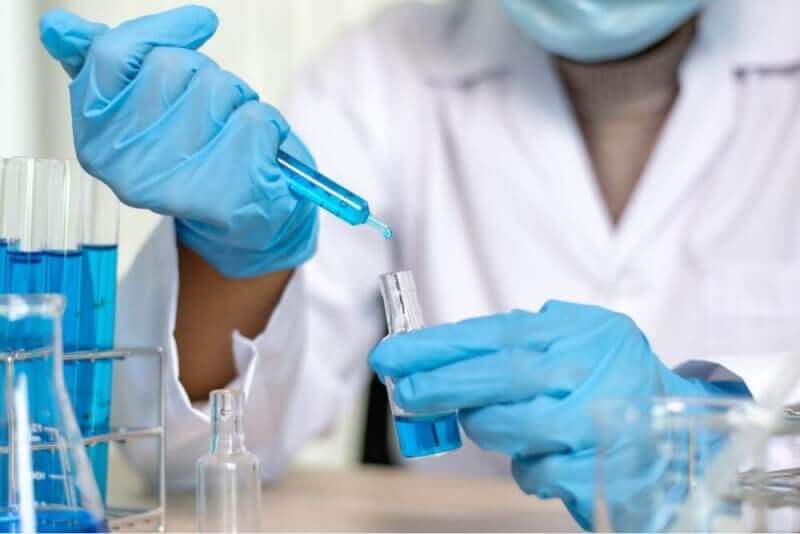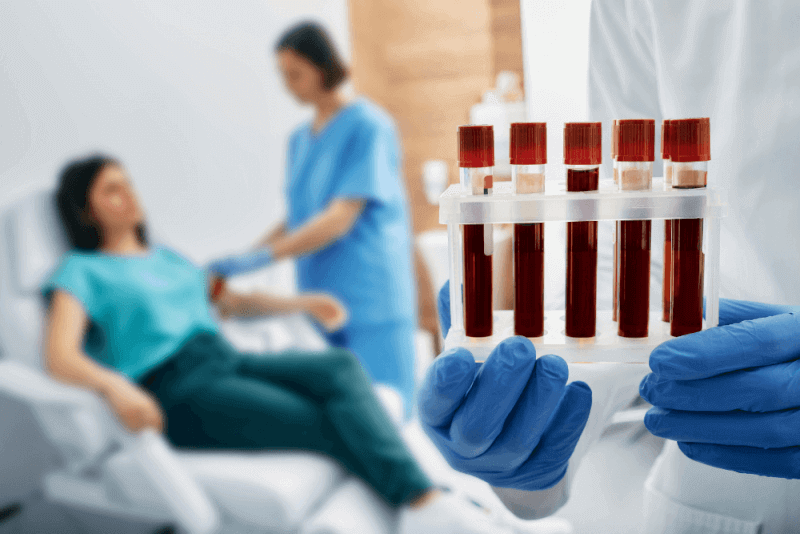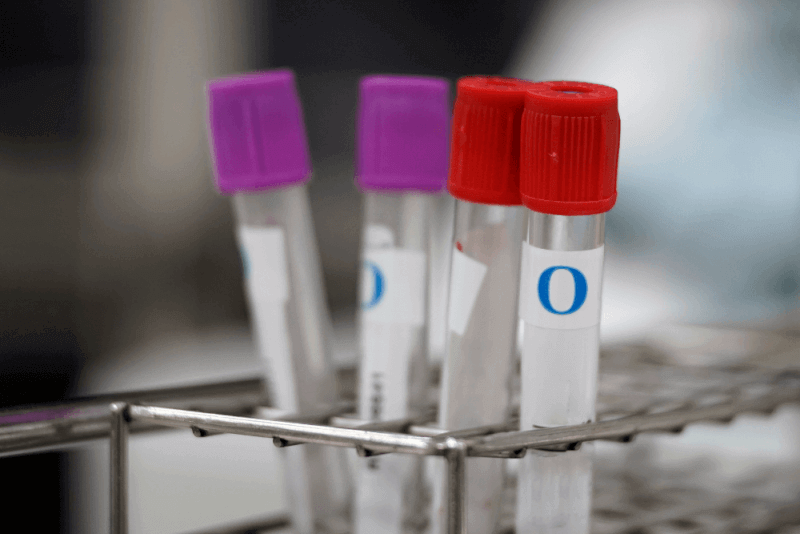What is a biochemistry test?
Biochemistry is the branch of science that examines the substances that make up all living tissues in the world and the functions of these substances. Each of these substances in living tissues has different functions and even the slightest disruption in these functions causes some problems to arise. Biochemistry tests also come into play at this point and various assays are used to investigate the disruptions and disorders that occur. In simpler terms, biochemistry tests are tests of blood and body fluids using various methods.
What is a biochemistry blood test?
Since the blood contains all kinds of chemicals related to the body, biochemistry tests applied to the blood enable the detection of diseases in the body. Blood biochemistry tests, which are generally used to detect hormonal and metabolic disorders, are also used to assess the excess or deficiency of vital substances in the blood.
What is a biochemistry hormone test?
Any deficiency or excess of hormones that ensure the healthy functioning of the body causes serious health problems. There are many different hormones in the normal functioning of the body. These hormones are secreted by different tissues in different parts of the body. What they have in common is that all hormones enter the bloodstream. For this reason, biochemistry hormone tests applied to blood and urine samples enable the levels of hormones secreted in the body to be determined.
What is a basic biochemistry test?
The basic biochemistry test allows parameters related to specific organs to be tested in groups. These tests include the following.
- Glucose
- Urea
- Creatine
- Bilirubin
- AST
- ALT
- Alkaline
- Phosphopathase
- Kidney function tests
- Liver function tests
- Bone profile
- Cardiac profile
What does a biochemistry test look for?
Biochemistry tests can be performed for screening purposes to assess health as well as routine tests to assess general health. Screening tests can diagnose many diseases, as well as identify risks such as cardiac disease risks.
Glucose
Glucose, the main source of energy for cells, is converted into glycogen or adipose tissue for storage in the liver. The concentration of glucose in the blood is controlled by hormones produced in the pancreas. By examining these values, diseases such as diabetes can be diagnosed.
Urea
It is the most commonly used test technique for testing kidney function. Health problems that can be checked with this test include chronic nephritis, reduced blood volume, urinary tract obstruction and tubular necrosis.
Creatine
Testing creatinine in serum or plasma is another test to determine kidney function. It is a product of creatine phosphate broken down in muscle.
Alanine aminotransferase (ALT)
It allows an enzyme in the liver to be tested. A high test result is considered a marker of liver damage. It also causes significant increases in acute hypotension and acute heart failure.
Aspartate aminotransferase (AST)
It is one of the enzymes secreted in the liver and is also found in the kidney, skeletal muscle, pancreas and red cells. It is recognized as one of the specific markers of liver injury.
Gamma-glutamyltransferase (GGT)
It is used to diagnose hepatobiliary disease and monitor the disease process. It is recognized as one of the most sensitive indicators of such diseases. In addition, people on long-term medication with phenytoin and phenobarbital also have elevated values.
Alkaline phosphatase (ALP)
There are a number of isoenzymes, with the highest concentration levels found in bones, kidney, liver, placenta and intestines. For this reason, it is one of the values used in the diagnosis of parathyroid, intestinal, bone and liver diseases.
Total protein
This test, which measures plasma protein levels, is often used to detect conditions such as blood loss, hypoprotinemia, nephrotic syndrome, salt retention syndrome, severe burns and acute protein deficiency. Plasma proteins are synthesized mainly in the spleen, lymph nodes and bone marrow.
Albumin
It is a test ordered for general health screening. It is usually added to renal function tests, liver function tests and metabolic panel.
Total bilirubin
The bilirubin level in the blood increases due to reasons such as an underdeveloped liver or obstruction in the bile ducts.
Uric acid
It is a type of test used in the diagnostic treatment of many renal and metabolic disorders. These include diseases such as leukemia, gout and psoriasis. It is also a test technique used in people taking cytotoxic drugs.
CK enzyme
Elevated serum levels of CK are used in the diagnosis of many muscle diseases, especially muscular dystrophy. Because in case of muscle damage, its amount in the blood increases.
Total cholesterol
It is used in the diagnosis and treatment of lipid and lipoprotein metabolic disorders, especially by measuring cholesterol levels, a type of steroid synthesized in the lung and intestinal wall.
LDL cholesterol
It is a test that allows the value of the type of cholesterol that accumulates in the blood vessel wall and causes atherosclerosis to be determined.
HDL cholesterol
A type of lipoprotein that transports cholesterol in the blood. It is often referred to as good cholesterol.
Triglyceride
Dietary triglycerides are partly synthesized in the liver. Triglyceride levels are used to diagnose disorders of lipid metabolism, bile duct obstruction and diabetes.
Iron
It is a test performed when iron poisoning or excessive iron accumulation is suspected. A ferritin test can then be performed to determine the level of storage.
Calcium
Hypercalcemia is a type of test used to diagnose diseases such as multiple myeloma and neoplastic diseases.
Phosphorus
An increase in phosphorus levels leads to a decrease in calcium levels. Diseases that cause hypophosphatemia include rickets, Fanconi syndrome and hyperparathyroidism.
Sodium
Since electrolytes are involved in many body functions, they are one of the most frequently performed biochemistry tests. Sodium, which is usually ingested through diet, may decrease in concentration in the body due to vomiting and excessive sweating.
Potassium
It is one of the biochemistry tests used to measure electrolytes in the body. They are processed like sodium and taken into the body.
How many hours for a biochemistry test?
Biochemistry tests include many different tests. Therefore, the time required to obtain the results varies. Accordingly, the results of generally applied biochemistry tests are as follows.
- Hormone tests are available within 3 to 4 hours.
- Hemogram tests give results within 1 to 2 hours.
- Fibrogen tests give results within 2 to 3 hours.
- The results of tests that measure blood type or blood clotting time are available within 10 to 20 minutes.
What is the biochemistry blood test for?
Biochemistry laboratories perform tests that enable the diagnosis of many different diseases. For this reason, it is subdivided into subtypes within the unit so that biochemistry tests can be performed efficiently.
Within the hormone section, the secretion levels of hormones in the body, which have an important role in the functioning of metabolism, especially infertility, are measured. In addition, various tests are performed to assess vitamin levels and the risk of heart disease. In addition, various tests for cancer markers are also performed in the same department.
The tests performed in the hematology coagulation department include multi-parameter blood counts as well as tests to detect bleeding and coagulation problems. The department, which identifies diseases with these markers, also determines the need for blood transfusion before and after surgery.
The drug levels section examines the effects on the body of drugs used for neurological diseases, heart diseases and organ transplantation. In addition, the effects of chemotherapy drugs administered to cancer patients are also being studied.







